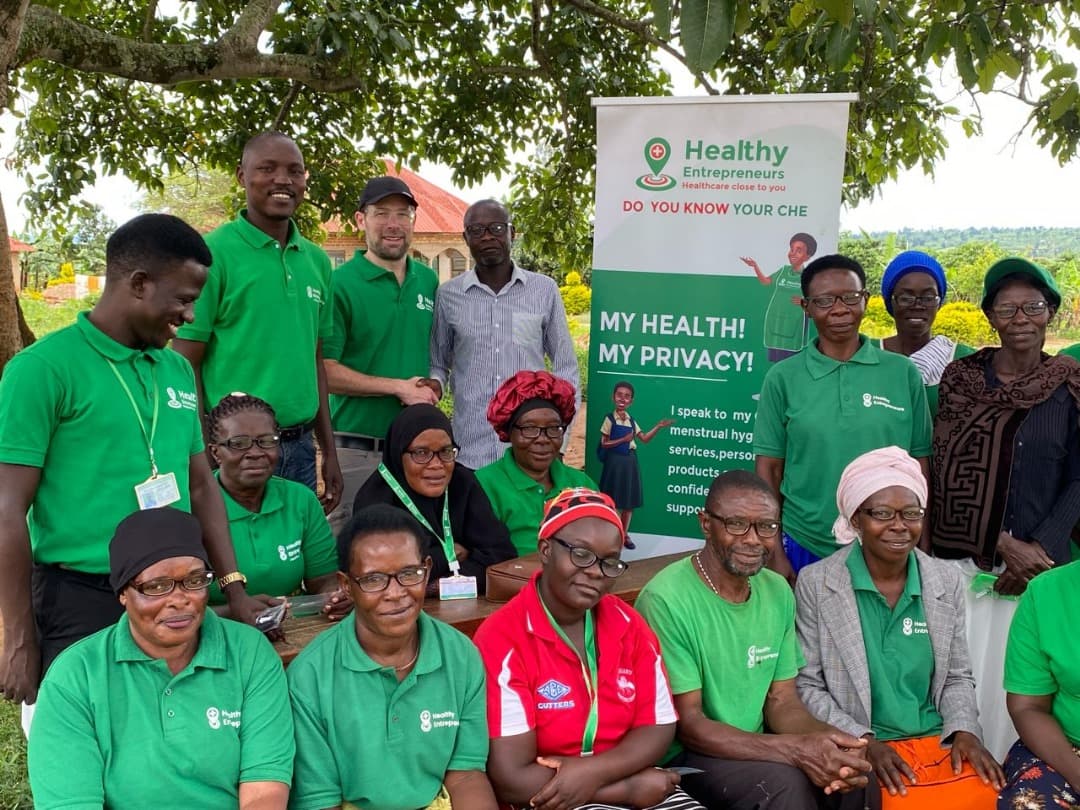
Impact Measurement in Action: Unpacking Vision Care Insights in Uganda
In the context of global health and international development, access to basic vision care remains a significant challenge for more than a billion people in developing countries. Of these, more than 800 million people have presbyopia and simply need a pair of reading glasses to be able to see clearly. eyesight can severely impact an individual’s quality of life, limiting their ability to work, learn, and participate fully in their communities.
To help address this critical need, innovative collaborations are emerging to provide new solutions and measure their impact. A growing body of evidence shows that the use of reading glasses has immediate and sustained impact on people’s income, productivity, and overall quality of life.
In 2022, two organizations, Healthy Entrepreneurs and RestoringVision, were awarded funding and support from the Million Lives Collective and Bayer Foundation to test a collaborative model that combined their strengths to accelerate and expand their impact.
Healthy Entrepreneurs is a social enterprise that equips Community Health Workers (CHWs) and trains them to become entrepreneurs to bring vital health care products to remote areas in Africa. RestoringVision is an international NGO dedicated to creating equitable access to vision services and eyeglasses for the most impoverished populations globally.
The pilot collaboration brought together Healthy Entrepreneurs’ network of community health workers (CHWs) in Uganda with Restoring Vision’s low-cost, high-quality reading glasses. The goal was to distribute these glasses through the CHWs, who already supply rural communities with basic health care products at low cost
Part of the project funding included impact measurement – 60 Decibels was engaged to gather rigorous, actionable customer feedback to help quantify the success of the pilot. We conducted phone interviews with 273 Ugandan customers who purchased near vision glasses from CHWs as part of the collaboration with RestoringVision.
We spoke with Mark Lorey from RestoringVision, Juliette van Halst from Healthy Entrepreneurs and Olivia Elson from Results for Development (the organization behind the Million Lives Collective) to get a first-hand perspective on the 60dB impact data collected on the pilot.
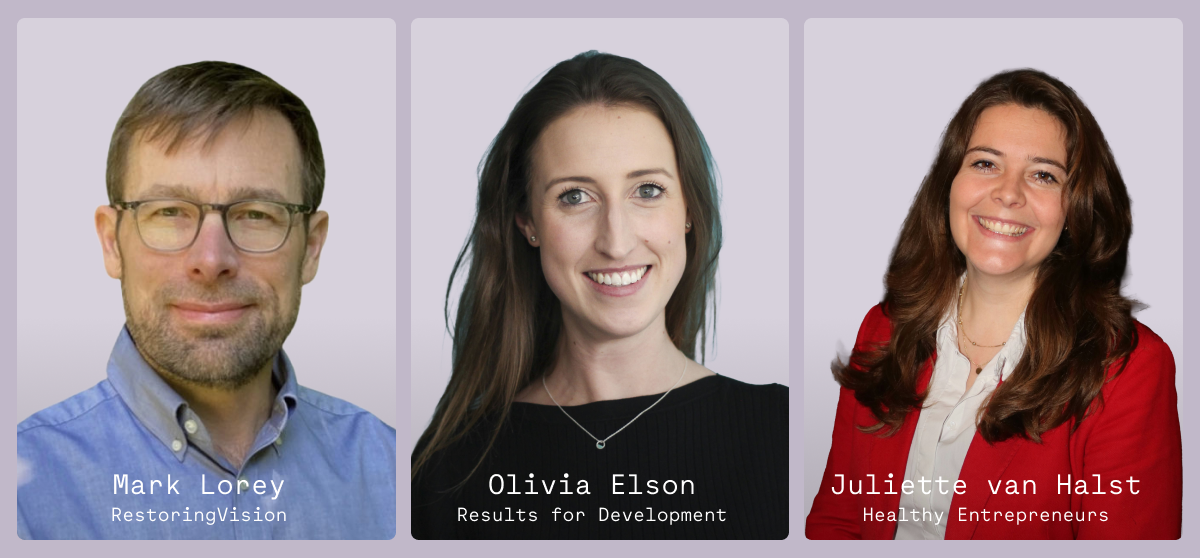
What did you set out to learn by listening to customers in the pilot?
Mark: Usually Restoring Vision operates using a philanthropic model where we provide glasses through partners, free of charge to the end user. This was our first time testing a social enterprise model where pricing is key. We wanted to understand if the price agreed with Healthy Entrepreneurs was something that people were willing to pay. But most of all, we were interested in learning about specific ways that the glasses were having an impact on people’s lives. Working with Healthy Entrepreneurs provided an ideal opportunity to explore these questions.
Juliette: We were looking to prove the business case – to see if the glasses were really a product that was needed by rural communities.
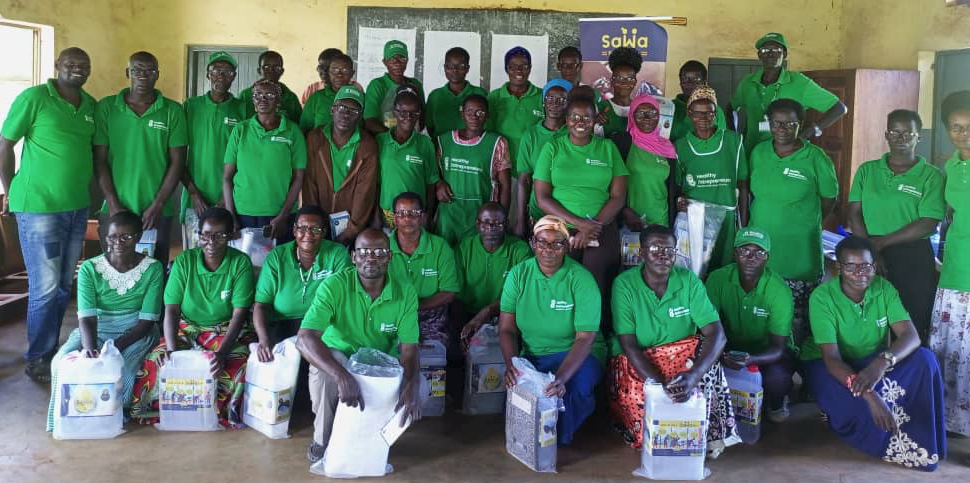
What were the most valuable findings you got from the 60 Decibels data?
Mark: We were absolutely struck by what customers reported about the impact the glasses had on their lives, for example:
- 96% said their confidence had increased after using the glasses
- 80% said their dependence on others has reduced
- 87% said their ability to work had improved
- 94% said their quality of life had improved overall because of the glasses
- And in just three months, 44% reported an increase in the money they earned as a result of the glasses.
We were also very encouraged that the feedback on the price point was that it was competitive and reasonable.
Juliette: Glasses were not necessarily top of mind for us before as something the CHWs could provide that would have such an impact on rural communities. The findings have provided compelling evidence of the impact that a very low cost, readily scalable intervention like eyeglasses can have in people’s lives.
Olivia: The results were also helpful in helping us to refine the approach – for example, customers said that they would like some supplementary products, like cases to keep their glasses in. We also learned ways to improve the screening process and the value of customers contacting their CHW if they have questions after purchasing the glasses. Given that this was a short-term pilot, it’s not surprising to pick up on tweaks like these, but it’s very helpful to know where to focus our attention for our final phase of work.
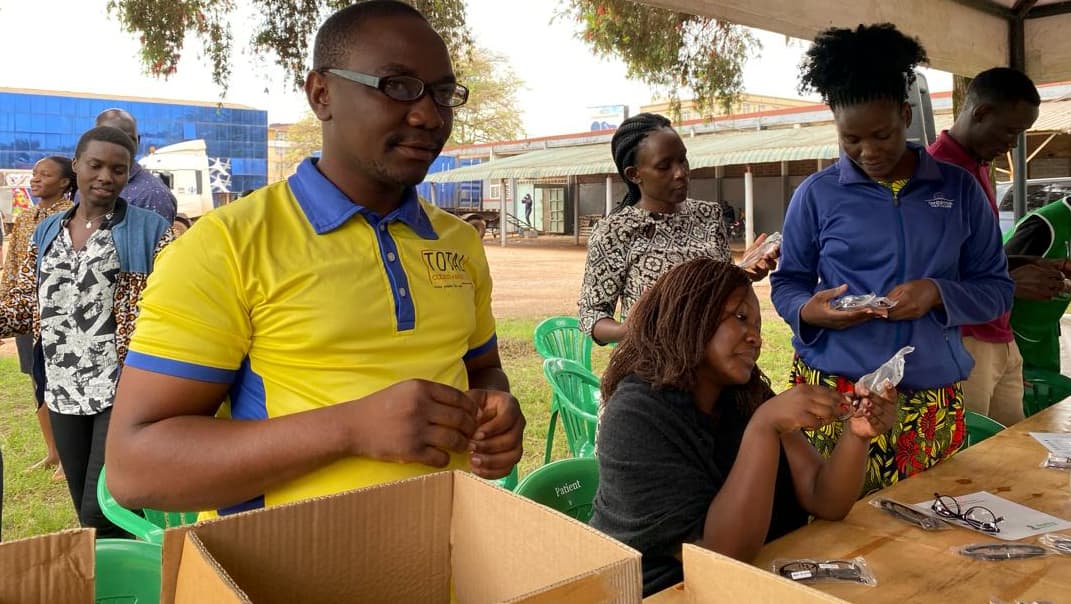
What are you doing with the findings now?
Juliette: The findings confirmed our business case, so we’re now looking into training the next CHWs to scale up the pilot. It’s also given us clarity on where we need to make back-end changes, like improving stock ordering to ensure CHWs have the right power of glasses available.
Mark: Our priority as we move into the final phase of this project is incorporating all the learnings from this assessment into how CHWs are trained in new regions so that they have all the support they need to be able to offer the glasses effectively.
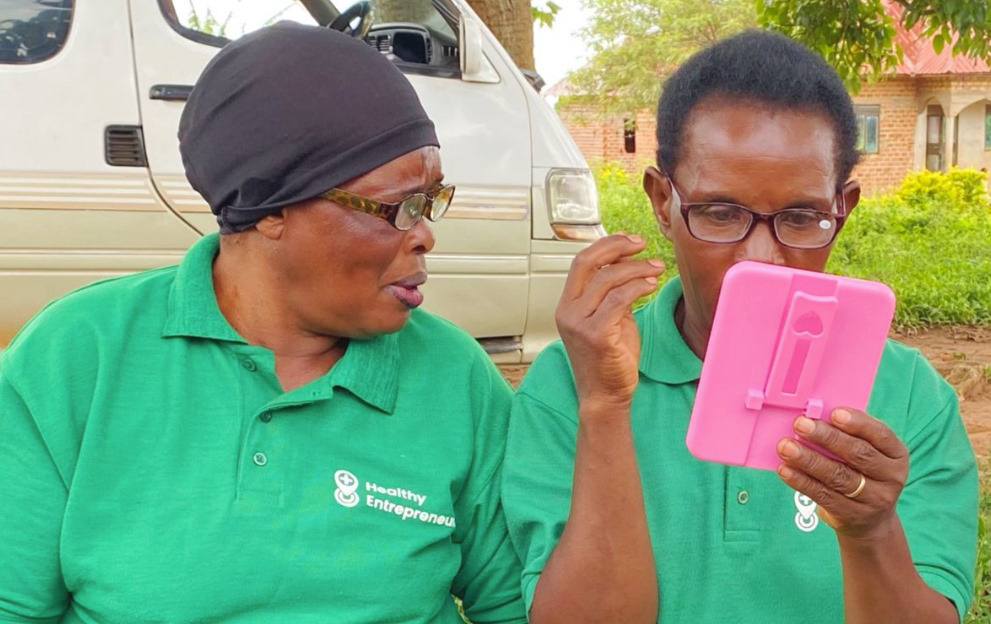
What was your experience of the process itself?
Juliette: It’s usually very time-consuming and difficult for us to do end customer research. We do some research with our entrepreneurs, but not the end customers themselves. So I was really amazed by how 60 Decibels is able to do this and get us the level of detail that we got in terms of the results.
Mark: We found 60 Decibels to be very open and collaborative from the very start of our engagement together and throughout. You worked with us to craft an approach, bringing a rigor based on experience that I really appreciated. The project was completed on time and within the anticipated cost. We’re also very pleased that the final report provides a compelling combination of quantitative data analysis and quotes from customers that bring the numbers to life.
Olivia: It was a very smooth process with the right blend of structure and flexibility. I really appreciate how Aayushi and Ramiro both really worked with us to co-create how the 60 Decibels methodology could be applied to our work. It was also excellent that we could accommodate so many local languages as well – that was important, given that this pilot was across a whole number of different regions in Uganda.
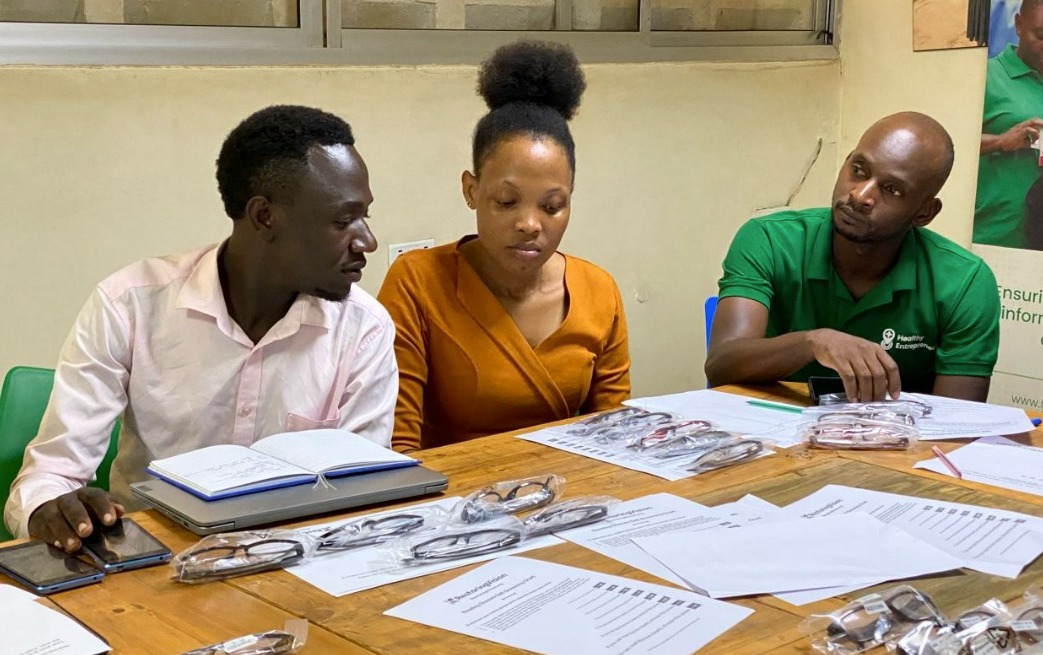
Lastly, in your words: why is it important to listen in this work?
Juliette: It’s so important for us to understand what is really needed in the community and what people actually want. That’s where the real impact comes from.
Olivia: Of course, we could easily count how many pairs of glasses have been sold, but we wouldn’t understand what that experience has been like for those people using them. The richness of that is really important. Not just looking at it as a set of figures and sales and targets, but really understanding the human experience around it, too.
The collaboration between Healthy Entrepreneurs, RestoringVision, Results for Development, and 60 Decibels demonstrates the power of innovative partnerships and data-driven impact measurement in addressing global health and development challenges. This project combined Healthy Entrepreneurs’ community-based distribution network with Restoring Vision’s affordable eyeglasses – piloting first in Uganda with aspirations to scale across Healthy Entrepreneurs network of CHWs in 7 countries. By utliizing 60 Decibels’ customer insights approach to impact assessment, the pilot not only improved vision care access in rural Uganda but also provided valuable insights for refining and scaling further.
